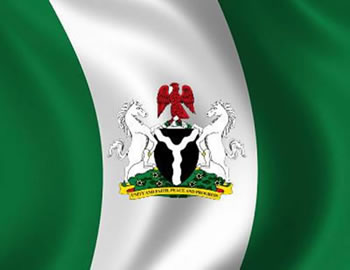ABOUT a year ago, the Federal Government directed the Nigeria Immigration Service (NIS) to retrieve all valid diplomatic and official passports from all persons not entitled to hold such documents. Part of the reasons adduced then was the need to protect the integrity of the country, and to ensure law and order. Going by the official records, 21 former governors, 42 ex-ministers and at least 309 members of the Seventh National Assembly were required to surrender their diplomatic passports by May 29, 2015. The list also includes former members of state Houses of Assembly, ex-commissioners, ex-special advisers and former local government chairmen. However, concerned with the indifference of some former public officials to comply with the directive, the government recently issued subtle threats to invoke extant laws on them.
Surprisingly, a lot of them still turned deaf ears, even though the return of the diplomatic passports was tied to the payment of their severance allowances and, in addition, the government had vowed to hand them over to the appropriate law enforcement agencies for prosecution. Indeed, a two-year jail term awaits anyone who possesses a diplomatic passport without authorization, as outlined in Section 10 of the extant Immigration Act, 2015.
In normal climes, public service is regarded as a call to service. Those privileged to hold public office, either appointive or elective, make enormous human and personal sacrifices in the service of their country. In return, the system confers on such individuals, certain rare privileges. More often than not, however, the beneficiaries of appointive and elective offices in Nigeria have a weird perception of such opportunities. Their actions and inactions are clearly in conflict with the real essence of public service. They regard appointments as, in the common parlance, an opportunity to ‘arrive’, climbing up the ladder of opulence and influence. Key appointments are seen as a passport to success and fame, and the occupiers gloat as if tomorrow will never come. And when it does, they are reluctant to adjust to their new status.
A diplomatic passport remains the property of the Nigerian state, and all categories of officials must see it as conferring a privilege extended to them because of their status. Unfortunately, most Nigerian leaders have never seen public office as a call to duty, so they cannot distinguish between service to the nation in their official capacity and living as private citizens. Otherwise, the pressure on them to surrender the passports in question would not have arisen at all. At the moment, though, there is too much privilege attached to governance in the country, making the few that are privileged to hold public office to become fastidious about the pecuniary benefits, and to hold on to those privileges even after office.
It amounts to impersonation for former public officials to hold on to their diplomatic passports after office. This is not just a crime and an embarrassment to them but also to the country, which graciously offered them a rare platform to serve. It is sheer irresponsibility and indiscipline for any ex-public official to hold on to the document even a second after leaving office, without genuine reasons. Such an individual will be considered to intend to use the documents for purposes other than those contemplated by the enabling act.
Diplomatic passports are a symbol of authority and authorization, which confer on the holders a burden of responsibility, integrity and discipline. Courtesies are extended by host countries to the holders to pave the way for their smooth passage and transaction of government business. For instance, the immunity associated with passports is evident in the free passage at international airports, where the rules of engagement normally require a search of luggage by security operatives. Since former public officials are duty-bound to surrender their diplomatic passports at the expiration of their tenure with the exception of former presidents, the conduct of those under reference only attests to the culture of impunity in the land.
A diplomatic passport only confers a privilege on the holder for a certain period of time. Given that serving and former public officers should set good examples as men and women of impeccable character and conduct whose actions should buoy the integrity and name of the country at all times, appropriate sanctions need to be meted out to those that violated extant laws on the diplomatic passport issue.





